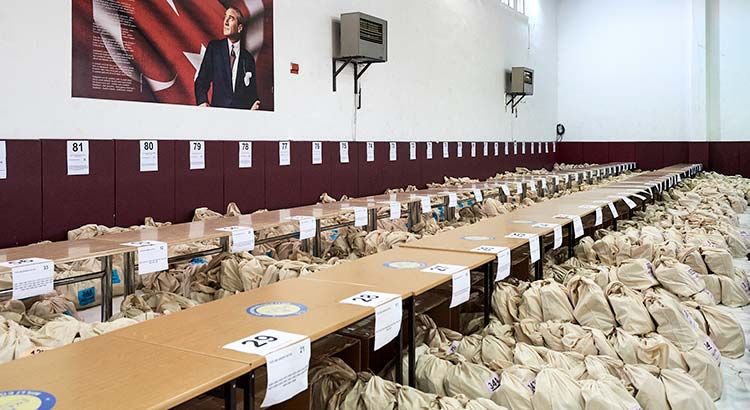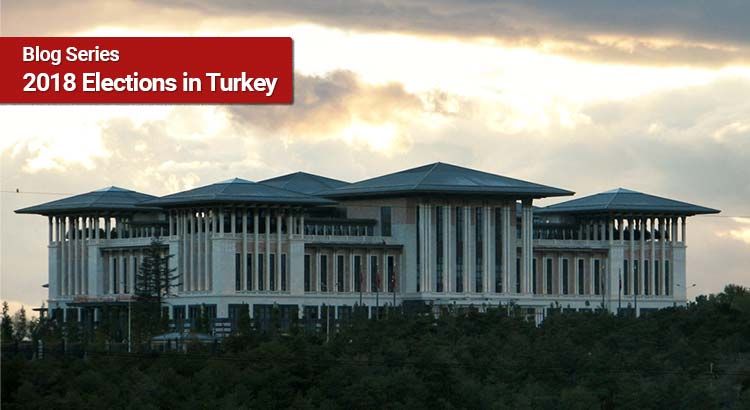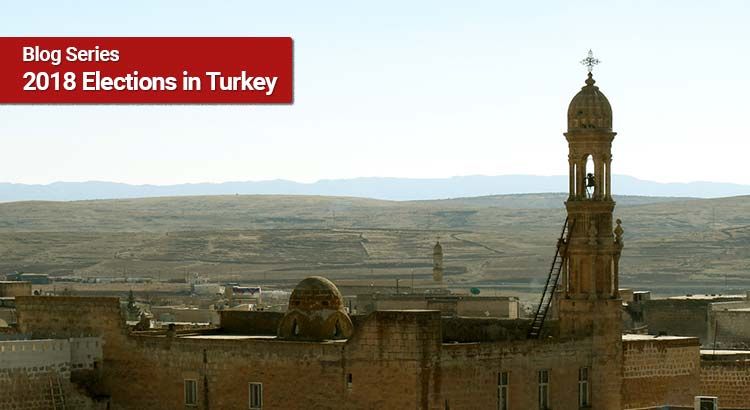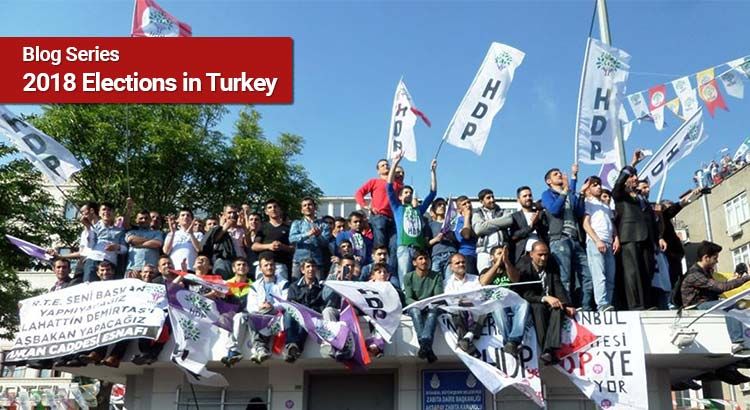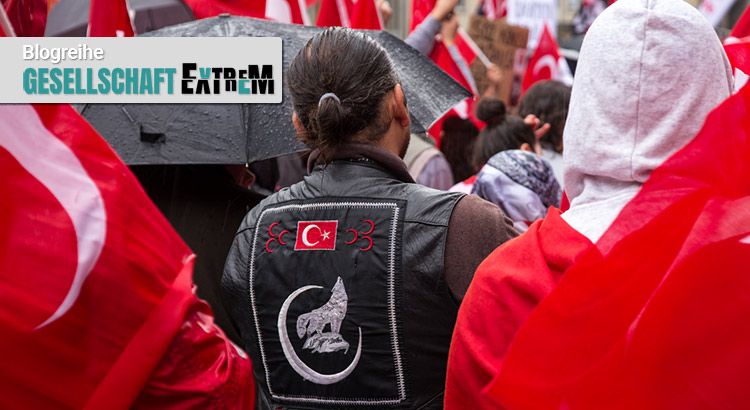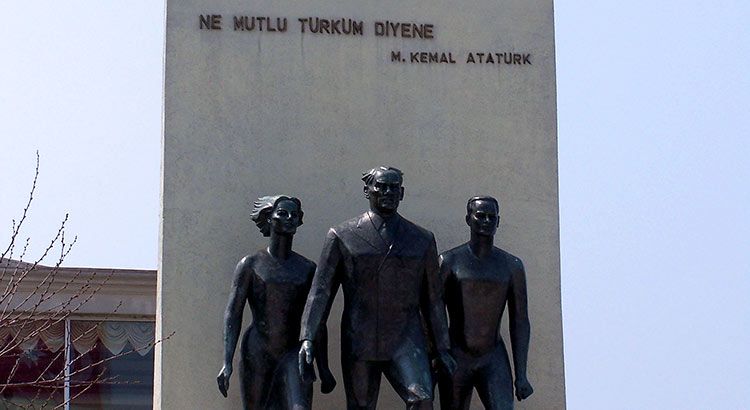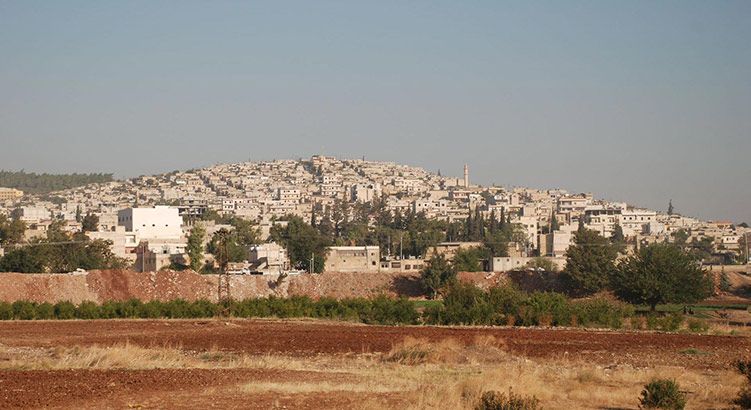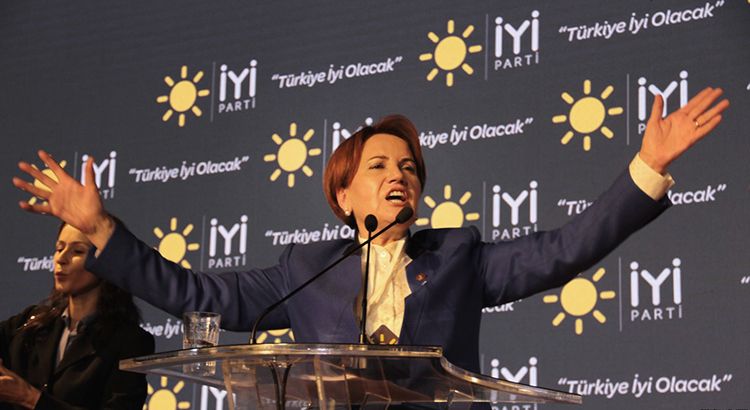Schlagwort: Türkei
The Turkish local elections showed interesting results: the AKP’s alliance gained the majority of the votes (51,67%), while the opposition managed to take over – according to the unofficial results – the key cities such as the capital Ankara and the finance capital Istanbul from the AKP. Even though it can be perceived as an overall success for Erdoğan’s alliance, it might also suggest a decrease in electorates’ support for the AKP’s politics and desire for change in the current political system. Now new challenges –and new conflicts- can be expected for the opposition and the government, which might influence the future of Turkish politics.
Das Ende der Türkei, wie wir sie kannten?
Die zweite Amtszeit Recep Tayyip Erdoğans als türkischer Präsident und die gleichzeitige Ausweitung der präsidialen Regierungsbefugnisse bedeutet das vorläufige Ende des parlamentarischen Systems der Türkei. Die folgenreiche Transformation erfolgte auf der Grundlage eines Referendums im April 2017 und der auf den Juni 2018 vorgezogenen Wahlen. – Wie ist zu erklären, dass eine Mehrheit für die Abschaffung von parlamentarischen Kontrollen und Rechten votierte und mit dem „nationalen Bündnis“ eine Ideologie stärkte, welche gesellschaftliche Spaltungen noch vertiefen wird? Neben den vorausgegangenen Einschränkungen des politischen Wettbewerbs und der als Alternative nicht überzeugenden Oppositionsallianz dürfte die ungebrochene Dominanz anderer als freiheitlicher Werte dazu beigetragen haben.
New Alliances and Old Traditions in Turkish Politics
For the first time in Turkey, political parties were allowed to build electoral alliances for parliamentary elections, and curious alliances did enter the political stage. Especially the “Nation Alliance” (Millet İttifakı) which was initiated by the centre-left main apposition CHP, the nationalist IYI Party and the small religious party SP constitute an interesting case. This ideologically hybrid alliance aimed to attract different segments of the society in order to overcome the AKP’s majority in parliament. The Nation Alliance, however, won only 33,94% whereas the so called “People’s Alliance (Cumhur İttifakı)” composed of the AKP and the MHP gained 53,66%. This contribution to the blog aims to analyse whether there is more behind the Nation Alliance than short-term election tactics.
Die Wahlen vom 24.06.2018 und ihre Auswirkungen auf die christlichen Minderheiten der Türkei
Mit dem Eintritt der radikal-nationalistischen MHP in die türkische Regierung könnte sich feindliche Stimmung gegen die christlichen Minderheiten im Lande noch verstärken. Gleichzeitig erzielte mit der pro-kurdischen HDP eine Partei beachtliche Ergebnisse, die sich explizit mit ihrem Programm und auch ihren Kandidat/innen für mehr Rechte der verschiedenen christlichen Gruppierungen einsetzt.
The HDP’s Performance in Turkey’s Authoritarian Electoral Campaign
Contrary to some predictions prior to the election, the incumbent President Recep Tayyip Erdoğan comfortably succeeded in winning the Presidential election (52.6%) without the need of a second round of voting. His party, the AKP obtained a parliamentary majority (53.7%), in coalition with the far-right MHP. However, the elections were held in an electoral environment characterised by a number of inherently antidemocratic limitations on opposition parties’ campaigns and the widespread occurrence of intimidation and violence. The experiences of the HDP exemplify some of the most blatant features of state led authoritarian interference in the campaign.
Radikalisierung in der Migrationsgesellschaft – Wo liegen die Ursachen ethnisch-nationalistischer Mobilmachung?
Begriffe wie Rassismus, Nationalismus, Ethnizität und Kulturalisierung haben in den Diskussionen der letzten fünf Jahrzehnte um die Migrationsthematik in der Einwanderungsgesellschaft immer wieder neue Konjunktur erfahren. Ob im wissenschaftlichen Kontext oder in der (politischen) Praxis, in den Medien oder im gesellschaftlichen Alltag, über diese Begriffe werden wichtige Debatten zur Einwanderungsgesellschaft geführt. Allerdings haben diese Diskussionen auch den Weg für kontroverse Auseinandersetzungen geebnet und damit auch ethnisch-nationalistische Einstellungen und Mobilisierungsformen gestärkt. Worin liegen die Motive und Faktoren für diese Entwicklung?
Glücklich, wer sich nicht nur Türke nennt! Yücel verdankt dem Doppelpass die Freilassung
Die Freilassung Deniz Yücels nach einem Jahr Untersuchungshaft in einem türkischen Hochsicherheitsgefängnis ist Anlass zur Freude. Dass sich in diese Freude mehr als nur ein bitterer Beigeschmack mischt, haben zahlreiche Kommentare der letzten Tage zum Ausdruck gebracht: Gibt es einen Deal mit Ankara? Was hieße es, wenn Pressefreiheit zur Verhandlungsmasse würde? Welche Konsequenzen hat es für die vielen noch immer in türkischen Gefängnissen einsitzenden Journalistinnen und Journalisten, wenn es ein Jahr Geheimdiplomatie und Kampagnen in Deutschland braucht, um in Freiheit zu gelangen? Eines zeigt der Fall auf tragische Weise: die Umdeutung der Staatsbürgerschaft zum nationalistischen Treuschwur ist in der Türkei vollzogen.
Turkey’s Invasion of Afrin must be Halted
Turkey’s ‘Operation Olive Branch’ is a marked escalation of its campaign against the Kurdish autonomous regions in Syria. The battle for Afrin, a mountainous, well defended region protected by a battle hardened Syrian Democratic Forces (SDF) forces will likely be protracted and lead to significant civilian casualties, due to Afrin’s large community of internally displaced Syrians. It will further compound the ongoing conflict against Kurds in Turkey and lead to, as of yet, unclear regional ramifications.
What’s in a Name? IYI Party – Good for Turkey?
A new political party was founded in Turkey on 25 October 2017. Named the “IYI Party”, meaning “good party”, it claims to bring betterment for Turkey’s financial, judicial and also human rights situation. The inaugural speech of the party’s founder, Meral Akşener, leaves an impression of the “modern” face of Turkish conservative politics. The IYI Party presents itself as an alternative to the Justice and Development Party (AKP) in times of a growing dissatisfaction with Turkish politics and reorientations in opposition parties’ political stance. Although the idea that the AKP era might come to an end is intriguing, the Akşener’s party seems to follow the well-known narrative of Turkish nationalism. For a truly pluralist democracy in Turkey, this is not enough.
